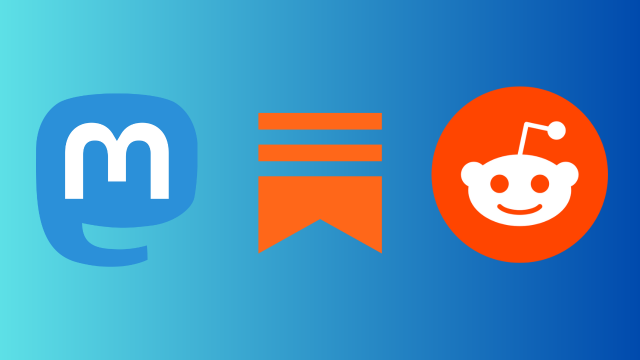So Twitter’s not going so great, hey? The website’s dilapidation since being purchased by Elon Musk has led to the sale of blue checkmarks, the exposure of Twitter Circles posts to public users, legal battles and advertisers pulling away from the platform. You might be thinking of Twitter alternatives right now – and luckily, there are some.
Here are some of the Twitter alternatives you might want to consider if you’re sick of the blue bird.
Substack Notes
Launched on April 12, 2023, Substack Notes appears to be quite a promising Twitter alternative in its infancy. Developed by startup Substack, which is a newsletter-fostering website that writers use to reach their audiences, similar to content creators on Patreon or Twitch, Substack looks almost identical to your main Twitter feed.
You can create a Substack account for free and move over to Substack Notes at any time. Many Twitter power users, in particular journalists and writers, also have Substacks, so if you’re worried about not seeing the same content as what you’d expect on Twitter, you shouldn’t be – unless these writers don’t make the change.
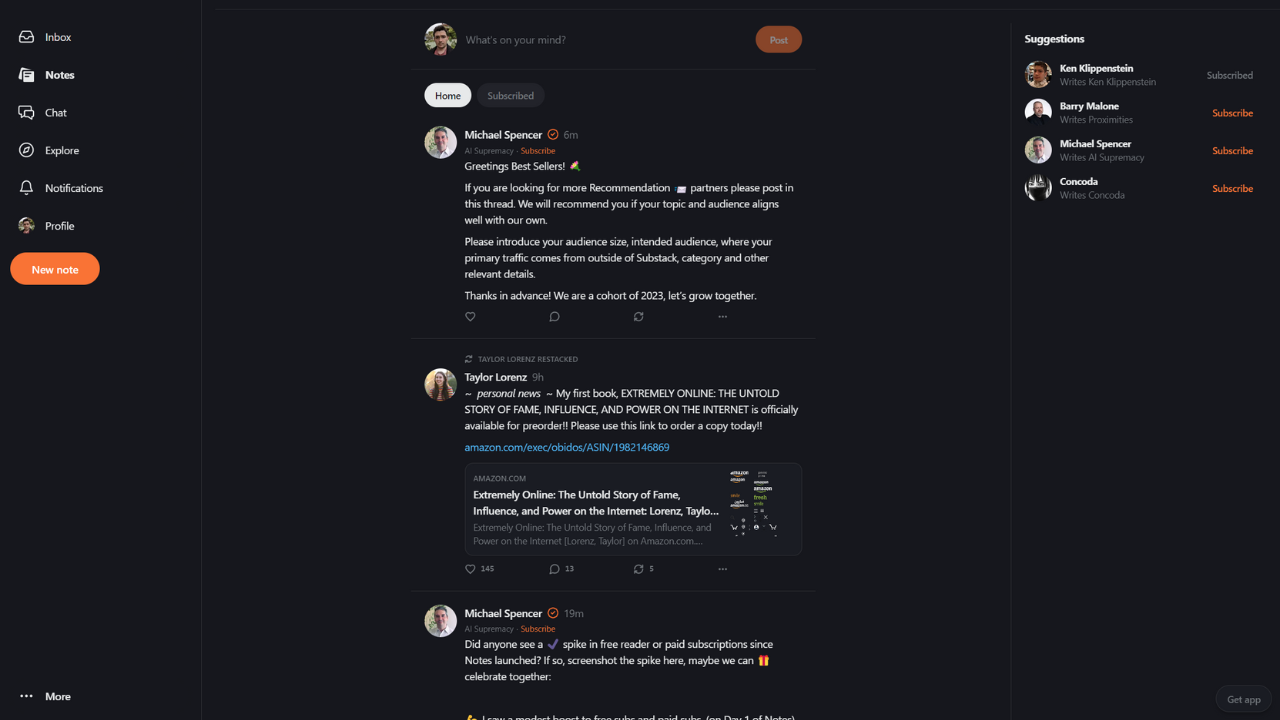
Mastodon
Mastodon is the social network that’s perhaps gaining the most traction since the Musk Twitter takeover, and it’s the one that offers the most Twitter-like experience, as well. Take a look at the Explore page and you’ll see what at first glance could be a reskinned version of the Twitter homepage.
One of the appealing aspects of Mastodon is that it’s decentralized, so it can’t be controlled by a single entity. It’s made up of multiple servers (or “instances”) that are managed by users, and that means it’s a bit trickier to sign up for — you have to choose a specific server to begin with, for example, and you can even create your own.
It’s much more bespoke in terms of topics, communities, moderation and funding (with server running costs often crowdfunded through Patreon) — and it’s also of course much smaller, which means less content on the topics you’re interested in. If you’re willing to invest the extra time and effort, though, you might well find that Mastodon gives you the Twitter-but-in-its-early-days experience you’re looking for.
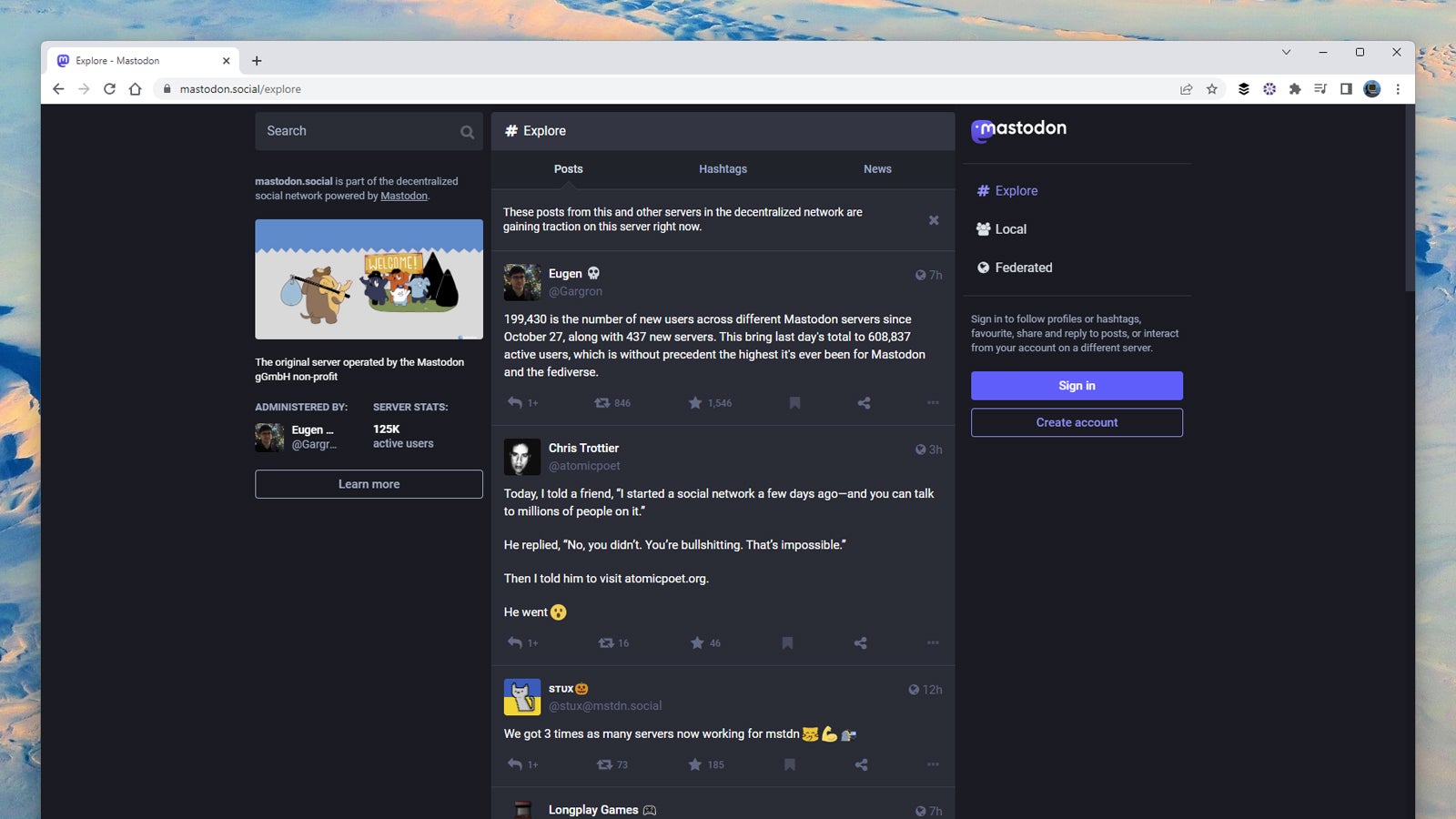
Tumblr
Believe it or not, Tumblr has been around since 2007, just a year after Twitter first appeared on the scene. In place of tweets, there are short blog-style posts, but they can be text, images, audio, video, chats or quotations — it’s a more varied place than Twitter, and offers more flexibility while remaining simple to set up and use.
The community features are well put together, with the options to follow, be followed, like, comment and repost all available, and your experience on the network is going to largely be determined by the other Tumblrs that you choose to follow: You can have nothing but Succession memes or nothing but Mediterranean food; it’s really up to you.
There are numerous search and tag features to help you surface the content you’re interested in, as well as controls over the visibility of your posts to other users. The network is free to use without any restriction, but you can opt to pay $5 per month for an ad-free experience if you want to.
Many Tumblr users, especially artists, did migrate to Twitter after numerous strict adult content bans came into effect in 2018, but the company’s recently announced that it’s planning to loosen those restrictions.
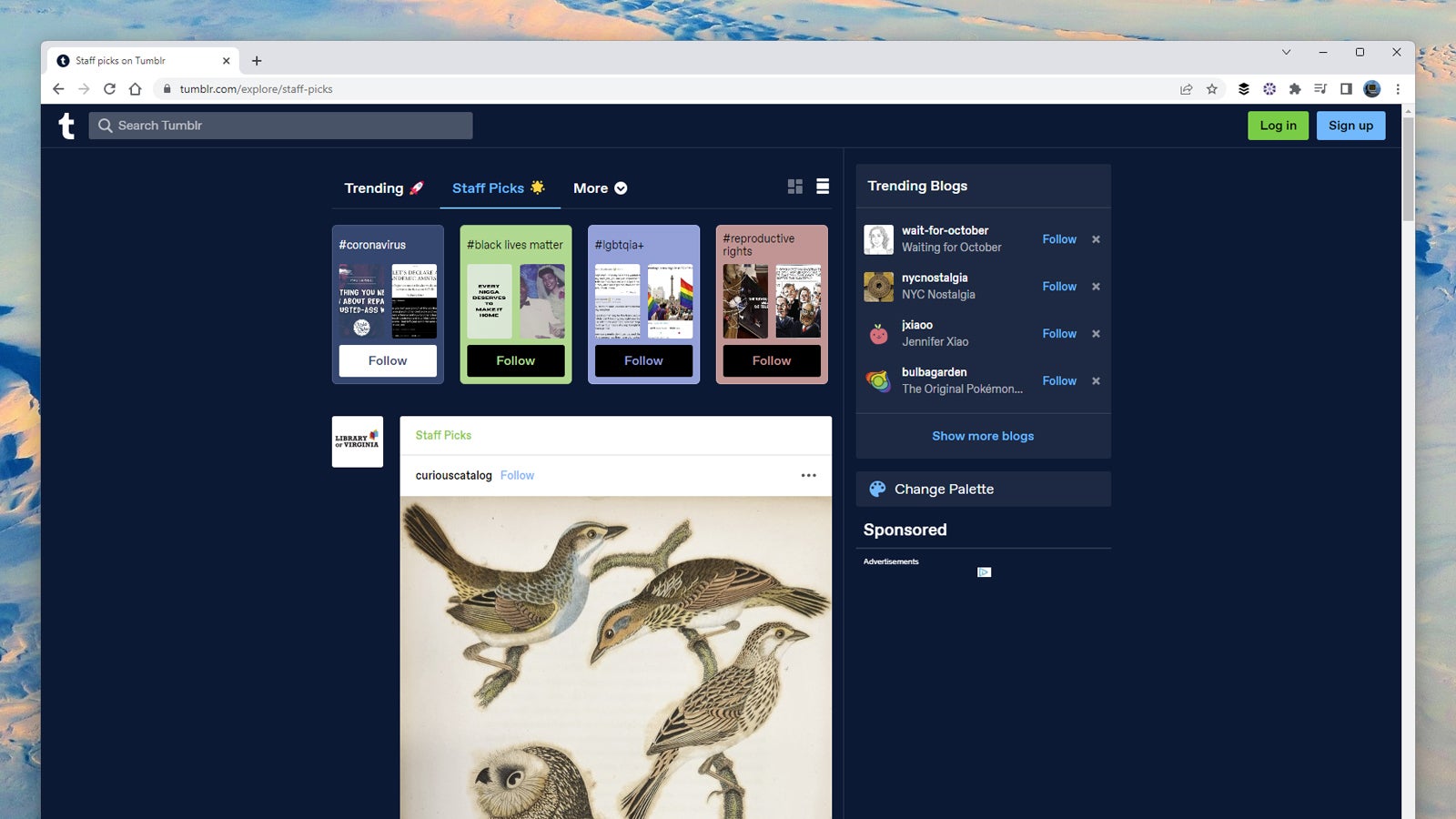
Reddit has an entirely different structure and set of features than Twitter, but at the same time, it can deliver a lot of what Twitter delivers: Running commentaries on breaking news, places to discuss popular culture, online distractions to pass the time of day, and space to meet like-minded people.
If you’ve never set a digital foot inside Reddit, it’s split up into subreddits that cover just about every topic imaginable, and your experience on the site and in the apps is going to be determined by which ones you sign up for. Think of the old school forums that the web used to be built on, but with plenty of modern flourishes — such as the ability to see what’s currently popular across the network. The site also got its start by focusing more on sharing links, but text posts are more common now.
You do get your own profile page on Reddit, but it isn’t a blogging platform in the same way that Twitter or Tumblr are. User “Follows” are a thing there, but the feature is recent and the site culture is less focused on it.
You can use Reddit completely free of charge, or pay $7 per month to get an ad-free experience plus some other bonuses (like exclusive extras for your Reddit avatar).
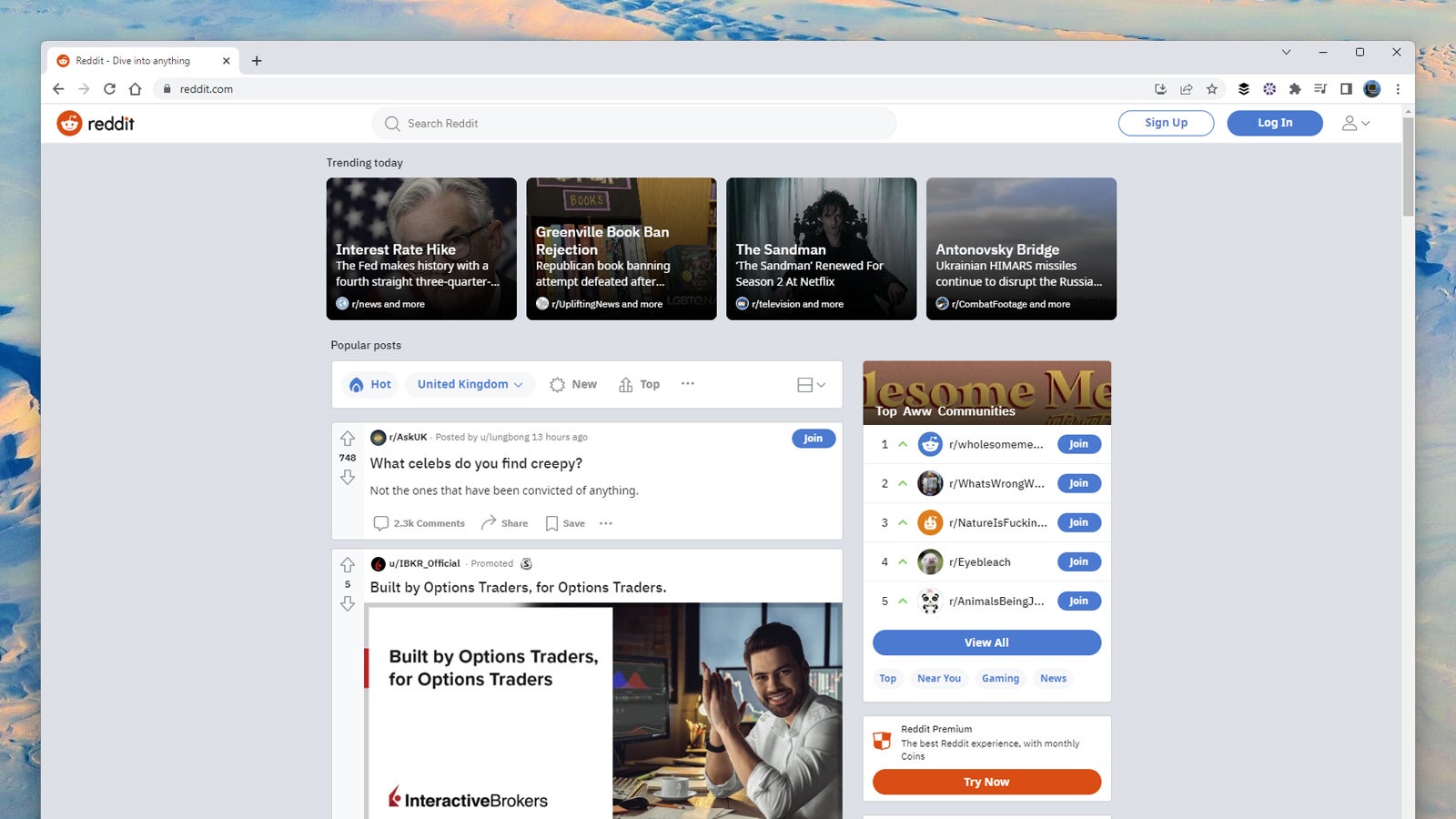
CounterSocial
CounterSocial bills itself as the “next-gen social network” — you’ll see that it looks quite a lot like Twitter, with several of the same features and functions, but it’s very particular in its zero tolerance stance towards trolls, bots, fake news and even advertising (it’s funded by the $7 per month premium subscriptions that give you a few extras, though you can use it for free).
One of the extras that you get with a subscription is access to the Counter Realms virtual reality space, which actually forms quite a large part of what CounterSocial is about. You can create and explore custom VR worlds in your browser, on your phone, or through a VR headset — though it’s not immediately clear which headsets are compatible.
If you’re after a TweetDeck-like experience on the app side with a bit of the metaverse thrown in, then CounterSocial might suit your needs if you’re abandoning Twitter. As is the problem with a lot of these fledgling social networks, though, you’re not going to find the same volume of users or the same volume of content.
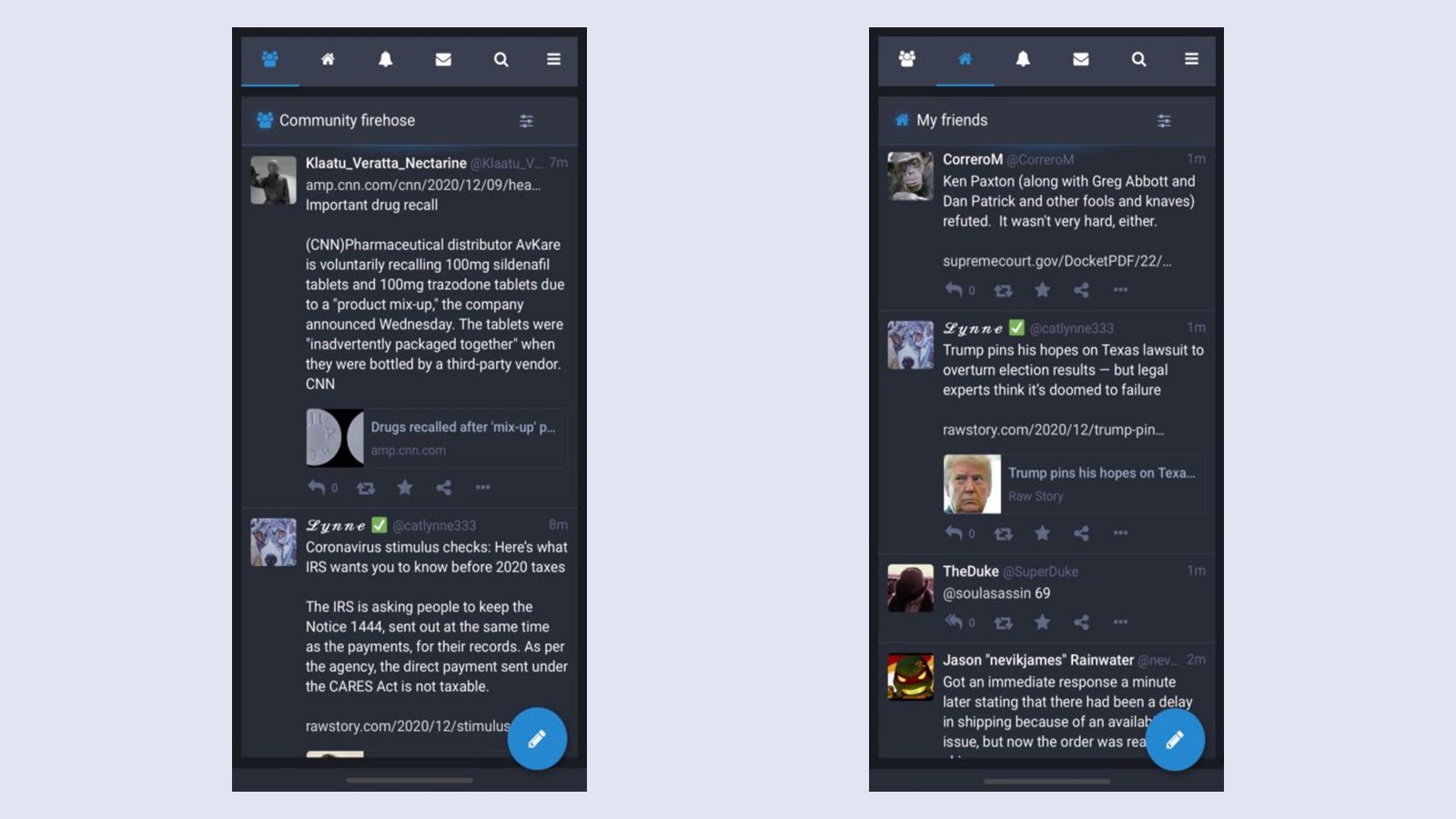
Cohost
Perhaps the ideal Twitter alternative hasn’t been fully established yet. Take Cohost, for example: It’s still very early days for this social network, but it’s aiming to replicate a lot of what Twitter offers, only (hopefully) without so much of the stress and turmoil: It’s got followers, reposts, likes, comments and plenty more besides.
As Cohost grows, it seems to be taking a thoughtful approach to issues like moderation and adult content, and the service is also transparent about the number of users it has and the amount of money it’s making — you can use the platform for free, or pay $7 for a growing selection of extras, including a higher upload limit for media and an expanded choice of customisation options.
Right now, the website interface has an appealing simplicity to it, and finding everything that you need to find is very straightforward. Of course, it’s still rough around the edges in certain areas, but it’s a promising start at building something up from scratch and (hopefully) learning lessons from the social platforms that have gone before it.
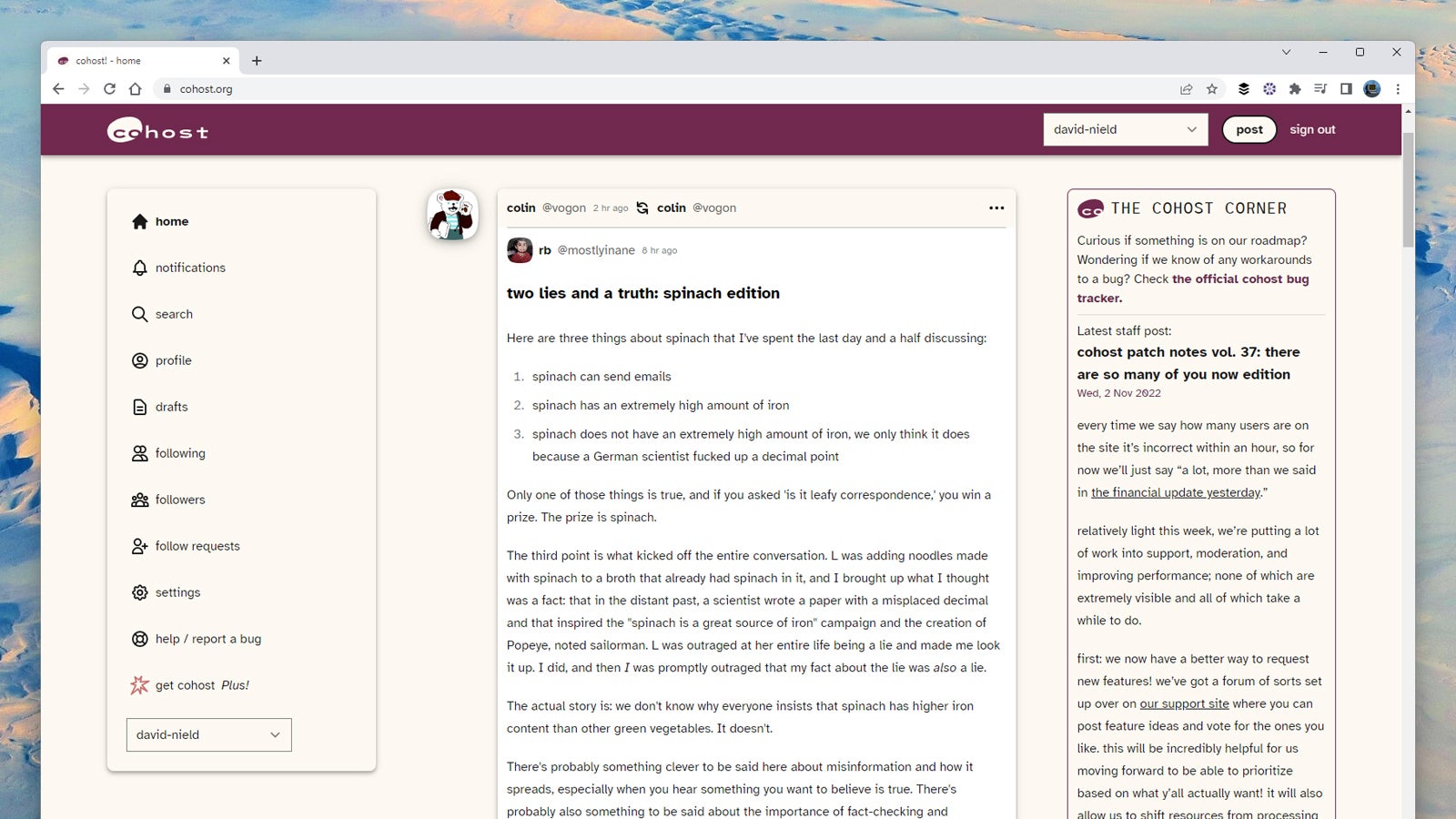
And that’s about it on Twitter alternatives. Many will likely arise as Twitter continues to crumble, but these are the six you should consider.
